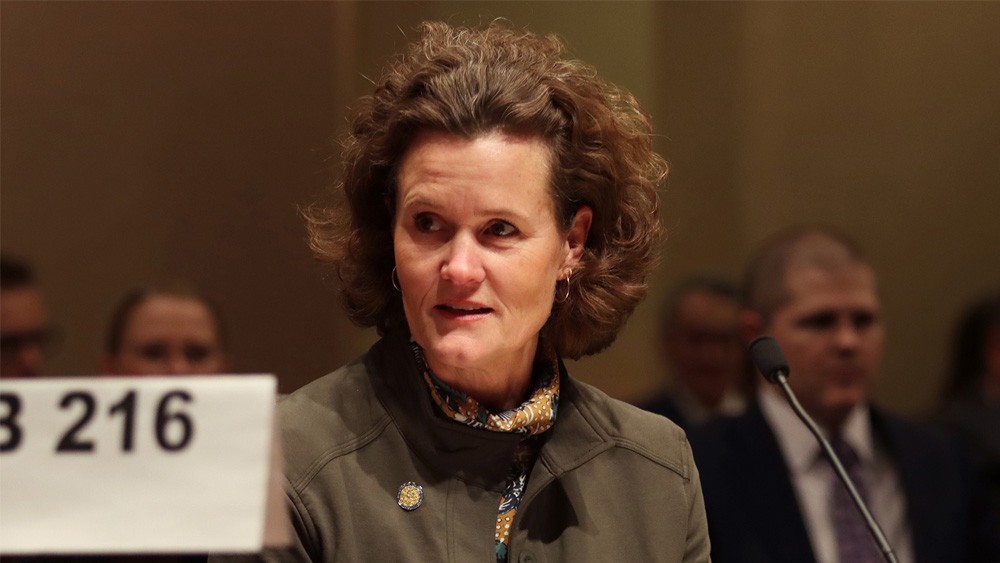
Jana Hughes ’93 was elected to the Nebraskan legislature in November 2022. Representing 39,000 people in that state’s unicameral system, she served on the Agriculture, Natural Resources and General Affairs committees during her first session in 2023. Hughes shares about her industrial and systems engineering journey and how she has applied those skills to politics.
What led you to study industrial engineering?
I will credit my mother 100%. I'm from Nebraska originally and grew up on a farm here. I was always interested in math, science and logical thinking. When I started looking for schools, my mom helped me find different engineering programs. Industrial just made sense to me. The whole system side of it, efficiency engineering.
How did the jump from Nebraska to Texas happen?
My cousin, who was about four years older, was at Baylor. My parents let me fly down to visit her in Waco, so I looked at Baylor. Then she said, “I'll either drive you down to look at Texas A&M, or we could go to SMU.” This is maybe the beginning of my junior year. I said, “Let's go to Texas A&M,” because I was looking into engineering. We went down and I really liked it. Then, when we got serious about it that next Easter, our family took a trip down there. It was snowing in Nebraska, and we get to Texas A&M, and it is 70 degrees. I thought, “This is my home.”
Did you have any issues as an out-of-state student?
I didn't know the traditions. I didn't know the yells. One of the most important things I did was attend Fish Camp. That was huge. That's where you learn all the traditions. You get your first group of friends, all that.
Would you mind walking me through your career path?
I took advantage of the co-op program with McNeil Consumer Products (now McNeil Consumer Healthcare). I had quite a few job offers and joined a consulting firm out of Atlanta, Georgia, with Kurt Salmon Associates (KSA). They are a consulting firm specializing in the retail industry and logistics. We lived where the projects were, which was cool. My first project was in Richmond, Virginia, and I was there for a year. Then, I moved to Minneapolis and I worked for Fingerhut, which was a mail-order catalog company. Then, I got sent to Memphis for the Disney Stores. That was fun, being in a distribution center with Winnie the Pooh on the boxes. After marrying my husband in 1996 — I still worked for KSA (at that point, I was a manager) — I flew out to the different projects. I'd fly out on Sunday and usually come back Thursday or Friday. I was on a very long-term project in the Dallas area for a few years. Then, once I got pregnant, I decided to be a stay-at-home mom. That's when my true engineering career ended, but I always say I engineered by volunteering for everything.
When did the politics happen?
I volunteered for tons of things — PTO boards, 4H, school, Sunday school, church, everything. I went to a presentation by our superintendent on property taxes and I got interested in how schools work. I ultimately got elected to the school board. Our state senator was termed out, and the school superintendent called me and he said, “Hey, I think you should consider running for the legislator position.” And at first, I said no. But I began to think about my connections to the community. My husband has a manufacturing business, so we have that mindset. I grew up and still own farm ground in the area, and my district is rural. I’d learned how school financing works, and that's what a lot of tax money is spent on. I’m thinking I should do this. It should be normal people. It shouldn't be lawyers and political science majors only in government.
Why is it valuable to have engineers interacting in policymaking?
I've always said it's a stereotype that engineers are very non-emotional, but if you can gather facts, use logic and pull the emotion out, I think that helps. You can weigh what makes sense and what doesn't. That fits me. I think it's good to have a mix of different kinds of people.
Do you have advice for students who are interested in industrial engineering?
Being able to express information in layman's terms so people can understand what you're saying is super important. As part of my position, I do a weekly article in our local papers. There's a whole legalese-type language that is super complicated, and I want bullet points. That kind of writing, that kind of speaking is huge because even if you're in an engineering capacity, you have to be able to share your ideas or your results with the management team. You’ve got to be able to communicate.